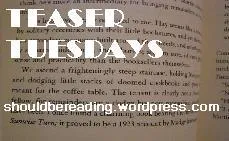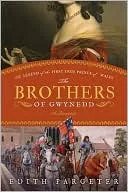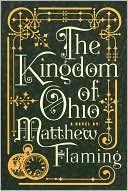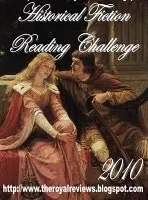One woman, one man, one fate for both...
A remote cottage on the wild coast of Cornwall sounded to Blythe Barton Stowe like the perfect escape from the pain and humiliation of events in far off Hollywood that had ended her marriage, her career, and all but destroyed her self-esteem. But soon she seems to be reliving a centuries-old tragedy, and the handsome owner of the shabby manor house on the hill appears vitally entwined in her destiny. As they unearth one shocking family secret after another, Blythe is forced to conclude that her intriguing neighbour is more than just an impecunious British gentleman bent on saving his ancestral home. And the impeccably honourable Lucas Teague begins to see Blythe as a lifeline in an otherwise bleak existence.
But is the unbridled attraction they're experiencing a dangerous distraction, or could it be strong enough to transcend the insurmountable complexities of time and place...?
I have been thinking a lot about time travel and time slip novels lately, mainly because there are some novels that I love that fall into this category. There are certain locations that seem to be prime settings for this kind of novel. I am not sure if it is due to a mystical reputation, the weather, or a rich historical setting, or what it is exactly but places like Ireland, Scotland and Cornwall seem to foster the kind of environment which is perfect for timeslip novels in particular.
In this case, the setting is Cornwall, although the story starts in Hollywood. Blythe Barton is one half of a successful Hollywood partnership. She was the production designer, her British husband Christopher was a seriously hot producer who has just won an Oscar and together they made critically and popularly successful movies. That is until he betrays her in one of the most callous ways possible.
When the book opens, Blythe and Christopher are finalising their divorce in a sea of paparazzi and publicity. All Blythe wants to do is escape. She could have gone back home to Wyoming but it no longer feels home to her after the death of her grandmother. Instead she rents an isolated cottage on cliff overlooking the sea in Cornwall. She had always intended to research the possibility that her own family originally came from the area, but hadn't seem to have been time before now.
Her landlord is handsome Lucas Teague, owner of the nearby stately home, Barton Hall. He is somewhat the impoverished landed gentry. Maybe impoverished is a little strong, but he is trying to come up with a way of saving his house as he is finding it difficult to keep up to date with taxes and with keeping the place maintained. He is therefore very pleased to have a paying tenant, especially when Blythe decides to extend the lease for the whole summer. When she comes up with a plan to turn the estate into a nursery business, the two of them go into partnership. Their attraction is mutual, but both of them carry a lot of emotional baggage with them, not to mention that there are the added complictions of Lucas's son and a very attractive godmother who seems to be more than just a friend.
Normally when I read a timeslip novel it is the historical story which keeps me most interested, but in this book I was more interested in the current story. The main reason for this is that I find the historical stuff a little too contrived... a little too try hard in some ways.
Whilst looking at the family tree in Lucas's home, she finds that there is an ancestor who bears her name who was also married to a Christopher. She is all the more surprised when she suddenly finds herself back in time seeing the events through the first Blythe's eyes. Where modern Blythe has been betrayed by those closest to her, historical Blythe is very much the betrayer. She is the betrothed of Christopher (known as Kit). It is a marriage that has been engineered by his father to ensure that the two land holdings that are adjacent to each other can be joined together both for future generations, but also because it will enable the much easier undertaking of smuggling operations. She is however in love (or at least lust) with Kit's much more charismatic and handsome younger brother.
I suspect the historical Blythe is meant to be seen as a spirited young woman who does whatever she can to get her own way, even if that means disgracing herself in the name of love, but in some ways she comes off instead as quite selfish. She certainly doesn't have the ability to be able to discern which of the people who surround her truly care for her. When the younger brother is sent into exile due to their terrible behaviour, Blythe thinks that she has the upper hand with her husband and that she will be able to keep her family home, but Kit has gone from a man who cherishes his wife to one who seeks the ultimate revenge.
I did like that through witnessing the events of the past, modern Blythe was able to get some perspective and healing from her own troubles, particularly when her ex husband turns up unexpectedly with a hidden agenda.
For the most part I enjoyed this read. Certainly I enjoyed the first few chapters enough to have requested the other book that my library has by this author before I had even finished the book. Normally I don't request the next book until I have finished the one that I was reading. By the time I got to the end, there were however a couple of things that didn't quite work for me.
The first thing I found a little odd was that the flashbacks weren't chronological. I guess there is no rule that says that they have to be, but if they weren't going to be then I wanted a reason why they weren't. Maybe I just didn't see that. The second actually related to the attempts at explanations that were given. As I mentioned before, places like Cornwall seem to me to have an aura of other worldliness so I didn't necessarily need to have the author work so hard at trying to bring a logical explanation of events. Some explanation was necessary for sure, but there were a few patches in the book where we were treated to long winded discussions which seemed to be a chance to regurgitate what the author had learned.
The final misstep for me was when the author was trying to make the connections between historical Blythe and modern Blythe's family, particularly in moving the action away from Cornwall which for me was so central to the success of the whole timeslip occurences.
This book was originally released in the late 1990s and so had been reviewed and updated, presumably with references to new technologies, and I thought that was pretty well done.
I really enjoyed all the references to Daphne du Maurier's books scattered throughout the pages, and I found myself wanting to pick up some of her books after I finished this one. It might still happen soon.
I guess to summarise, I enjoyed this one, but for different reasons than I would normally enjoy a time slip/time travel novel.
Thanks to Sourcebooks for sending me a review copy of this book.
Rating 4/5




















































